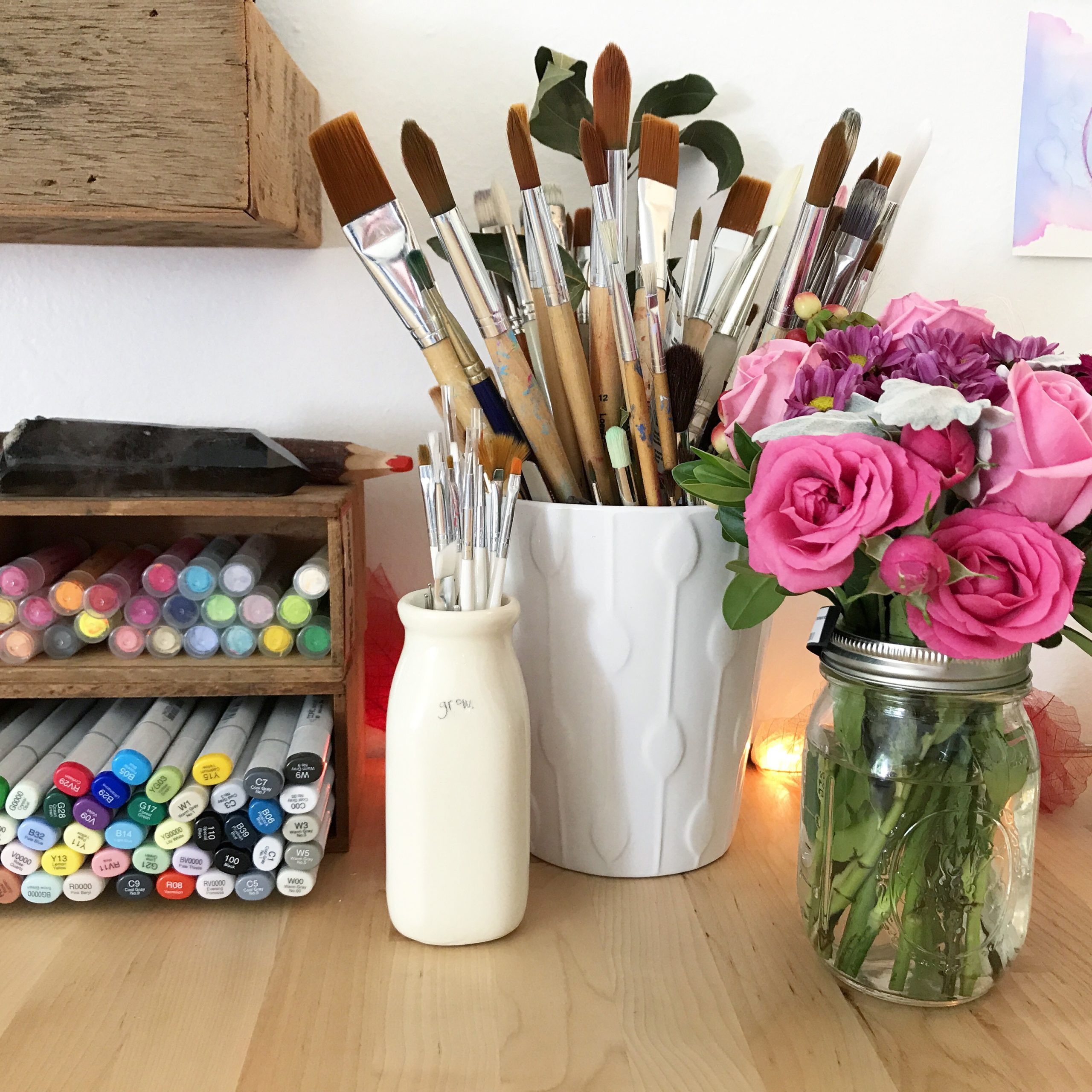By Amanda Hart, Graduate Art Therapy student at Naropa University

Jen Berlingo is an art therapist working out of San Francisco, CA, working both online and in the community. She has wonderfully marketed herself on Facebook, Instagram (@JenBerlingo), and through her website JenBerlingo.com. Jen is an alumni from Naropa’s graduate program in Transpersonal Clinical Mental Health Counseling and Art Therapy.
In this interview, Jen answers questions about her experience and the importance of offering diverse supports such as online and on location workshops, one on one counseling, and SoulSpace, an online series for therapist’s self-care.
Hart: You’ve really done an amazing job of marketing yourself online, and working to provide your services and creations across different social platforms. What advice would you give to aspiring art therapists trying to do the same?
Berlingo: Prior to becoming an art therapist, I had a career in the internet industry—holding positions in web design and production, and eventually as a sales engineer and product manager for a huge internet advertising company. I worked very closely on the business models of some of the first social media sites in the late 90s, so the internet, and specifically social media, have been a comfortable forum for me from the start of my therapy career. However, in my graduate training and first years working, like many therapists, I feared the blurry lines the internet has the potential to create for those in our field.

My comfort level for sharing myself in my professional, public social media spaces has actually grown with time and experience. While I set a boundary at sharing very personal life details and sharing about my family members, I’ve recently grown comfortable posting some of my own art and ritual practices on social media. Not only does it feel aligned and congruent for me to do so, but I feel like showing up in this way can perhaps be permissive, inspiring, and even healing for others.
I also have a hope that my being visible in this way brings awareness to art therapy, a field that is historically underrated and misunderstood. My suggestion for aspiring art therapists in navigating this terrain is to adhere to law and ethics parameters around social media use foremost. Then, within those limitations, decide which pieces of your life, art, and truth feel productive and satisfying to express on social media.”
Hart: You really keep your offerings diverse, while also marketing yourself and your services in a lot of different ways. Can you talk more about why this is important to you?
Berlingo: I constantly stand in awe at the intimate connection and undeniable magic that happens in one-on-one sessions and in-person workshops and groups. To add to that, over the past few years, I followed an inner call to broaden my offerings in a way that could widen the conversation and community by offering online courses. It has been so very rewarding for me to write and create courses, and my heart swells when I see and get feedback about the depth of community that can develop around them.
The course I’ve been offering the past two years, the SoulSpace Series, is for therapists and healers (whether in training or seasoned) on creating their own daily self-care rituals. Currently, I am also part of a course collective where I offer a self-paced, art-based workshop on self-inquiry via chakra exploration, another of my passions. Diversifying my offerings and widening my reach beyond my zip code feels to me like stepping into a vision I’ve always held for myself, and it’s still evolving.”
Follow Naropa Art Therapy on Instagram or join our Art Therapy Facebook Group.


